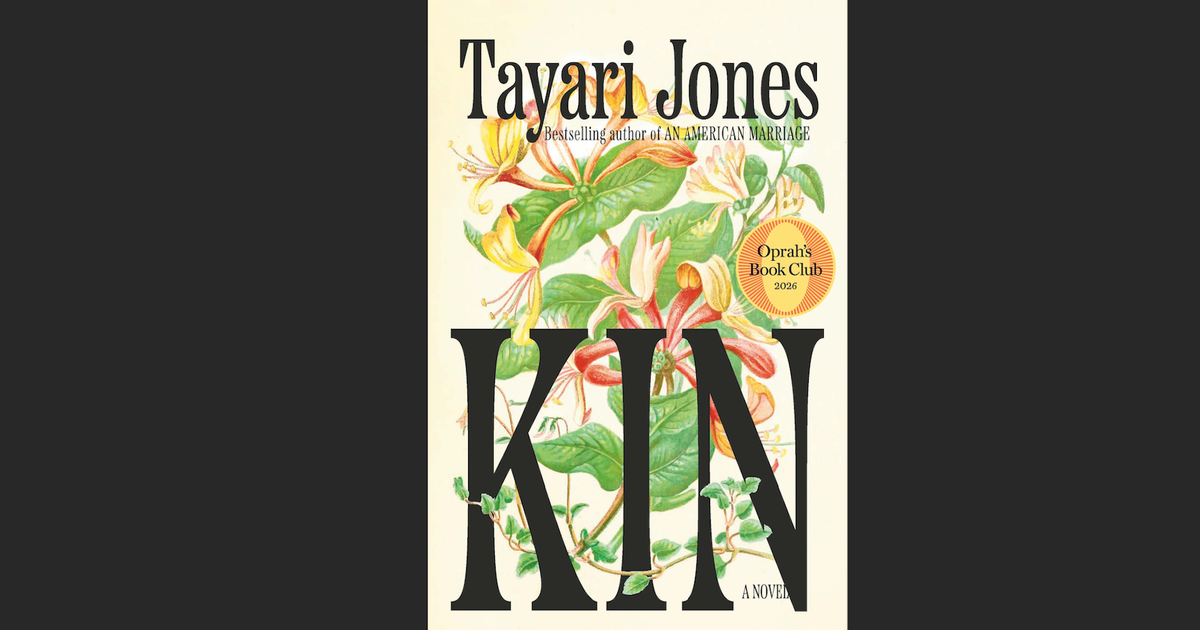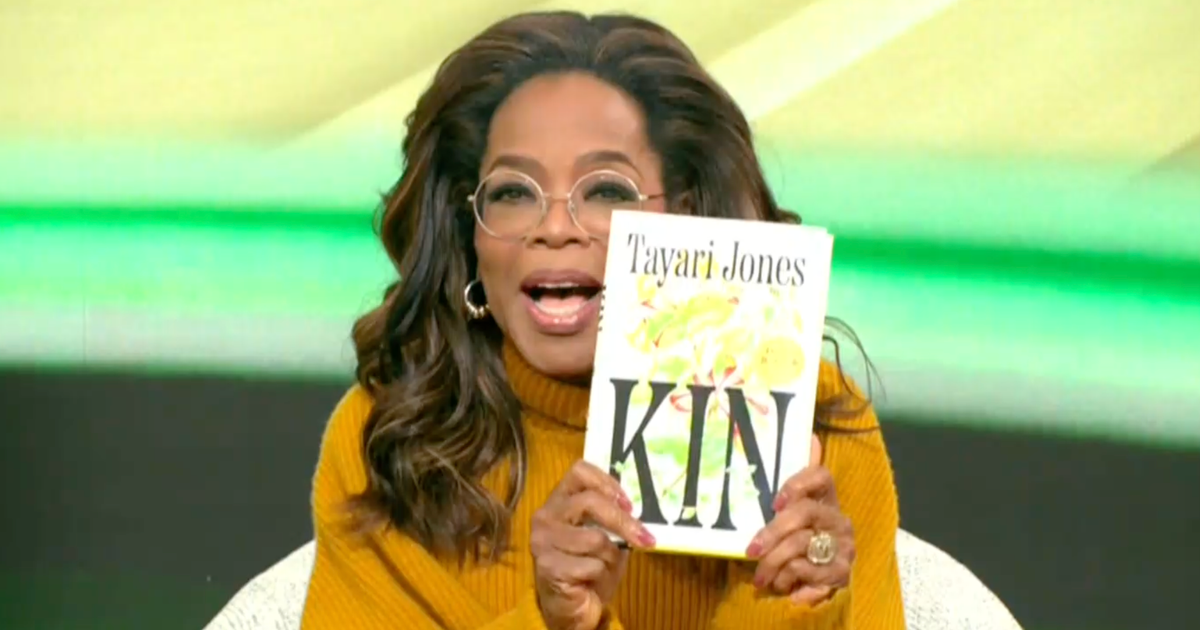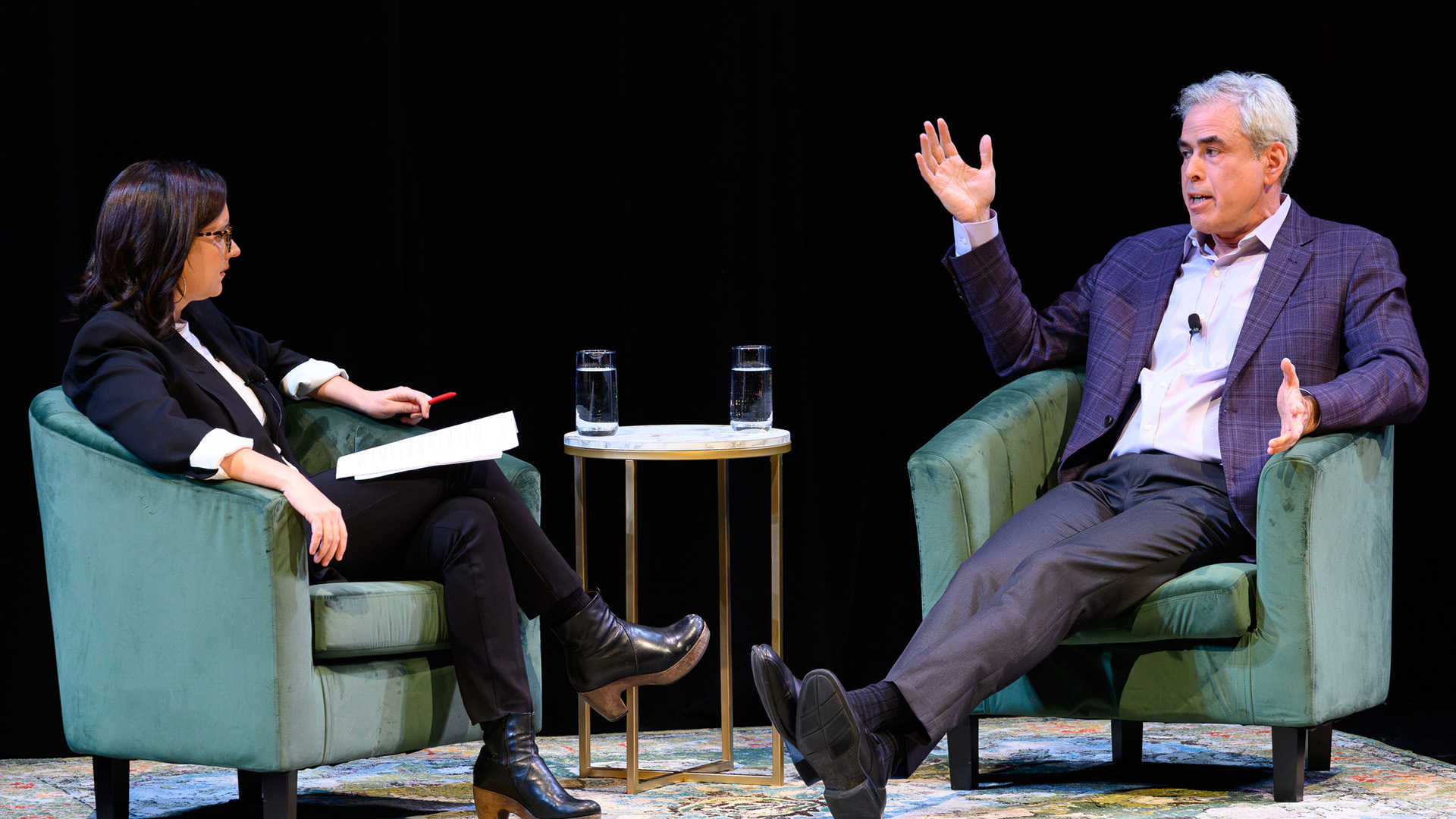Jon Stewart reflects on the evolution of "The Daily Show"
Jon Stewart said he has an optimistic outlook for America’s future after the presidential election. The former “Daily Show” host shared his thoughts with “CBS This Morning” co-host Charlie Rose last week, ahead of Tuesday’s release of his book, “The Daily Show (The Book): An Oral History as Told by Jon Stewart, the Correspondents, Staff and Guests,” which documents his nearly 17 years as the show’s host.
“Over the 16 years how did the show evolve? What did it become that it was not at the beginning?” Rose asked.
“I mean, in truth, I think the evolution of the show -- We just became better at… doing it,” Stewart said. “What we tried to develop was a decent internal barometer of what worked for the show, and how well we could execute it. So, you know, you couldn’t ever look at a piece and go like, ‘I don’t know if this is Emmy-worthy. And we’re an Emmy Award-winning show.”
“Yes, indeed,” Rose said.
“You had to try and keep your own morality and integrity as the beacon for where you wanted the material to go,” Stewart said.
“Was it the best extension of your talent?” Rose asked.
“I believe it was the best extension of… what I know how to do. And perhaps I didn’t necessarily know that at the time,” Stewart said.
“But you were running the show too. I mean, you were there in the trenches,” Rose said.
“I wouldn’t refer to them as, you know, if you have -- if you have a craft services table, generally that is not trenches,” Stewart said, laughing.
Chris Smith is the author of the new book on “The Daily Show,” which highlights the satirical show’s rise with Stewart at the helm.
“So, Chris, what did it become?” Rose asked. “It became for all of us a kind of cultural event.”
“Yeah. And that’s interesting,” Smith said.
“More than a show,” Rose added.
“Yeah. It’s easy to forget in 2016 what the media world looked like in 1996, 1997, 1999, where Comedy Central was, you know, still kind of a sketchy proposition,” Smith said.
“One of the pivotal segments on the show that we were able to do through, you know, the Bush versus Bush back in the…” Stewart said.
“2003,” Smith finished Stewart’s thought.
“2003. He knows this way better than I do, by the way,” Stewart said, referring to an episode about then President George W. Bush debating Governor George W. Bush of Texas.
“Mr. President, is the idea to just build a new country that we just like better?” Stewart asked in the show, then showing two contradictory answers from Bush.
“We will tear down the apparatus of terror and we will help you to build a new Iraq that is prosperous and free,” said President Bush.
“I don’t think our troops ought to be used for what’s called nation building,” said the governor version.
“People used to come up to me in the news business: ‘How do you guys find the clip of the guy contradicting himself, you know, from five years ago?’ And I go, ‘Oh we have a TiVo,” Stewart said. “We recorded it. And then we go back, and we search for it.”
“But the idea of what ‘The Daily Show’ became was not something that was banging around in your head when you took this job, or was it?” Rose asked.
“Well, what was banging around in my head was, ‘Is there a better way to execute public affairs comedy that means something to me?’ ‘Can I express my comedy about things that I care about in a way that’s entertaining enough that I won’t get fired?’” Stewart said. “And it could get rejected. But at least I’ll know…”
“If I go down, let me go down doing my way,” Rose said.
“That’s -- that’s right. I’m going to go down the way I feel like – ‘I’m gonna do it in the way that I think is the best iteration of my abilities.’ And if that goes down, you know, I can bartend,” Stewart said.
“What they found early on was a tone,” Smith said. “They found a tone in a piece Steve Carell did with John McCain on the Straight Talk Express in late 1999. Carell is a world-class improviser. The difficulty in this is -- you’ve got world-class improvisers working with civilians who don’t know they’re in an improv.”
“Senator, how to reconcile the fact that you are one of the most vocal critics of pork barrel politics and yet while you were chairman of the Commerce committee, that committee set a record for unauthorized appropriations?” Carell asked McCain on the show.
“And McCain freezes. There’s a deer in the headlights moment,” Smith said.
But after that, Carell told McCain, “I’m just kidding.” Stewart called it “catch and release.”
“And then what do we have to do at that point? We let you go... Because we have to undercut it with a laugh. So it’s that idea of, ‘I got you. And I -- here’s my one moment. And I’m going to with a scalpel go at the… crux of your identity as a politician and expose it for everybody to see,” Stewart said. “One of the difficulties of this is, this has been given a greater place in the discussion, and a larger role in the discourse than is warranted. And once that started to happen, I think you began to question if it’s a good thing or a bad thing.”
“Do you think that you can find something that’s equally right for you again? Or do you just simply hit a homerun there?” Rose asked. “You found the perfect place for you and it was 17 years of...”
“Yes. It was a gift that was, that I was fortunate enough to be graced with for all that time and to be in contact with all those incredible people. But I -- I don’t expect to find that again,” Stewart said. “There’s a difference between satisfaction and joy. This gave me great satisfaction and it gave me great confidence, but joy – joy driving a couple of knucklehead kids home from school that I get to sit, listen.”
“That’s joy?” Rose asked.
“Joy,” Stewart said.



